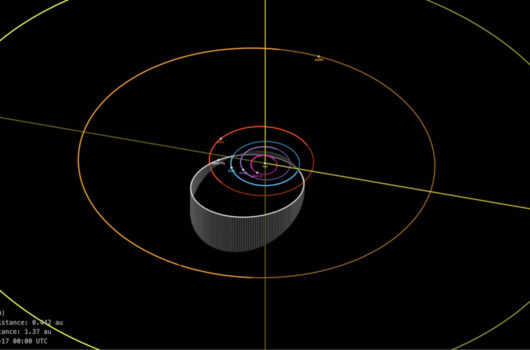Finite-temperature effects in dynamical spacetime binary neutron star merger simulations: validation of the parametric approach
Finite-temperature effects in dynamical spacetime binary neutron star merger simulations: validation of the parametric approach
View
Abstract
Parametric equations of state (EoSs) provide an important tool for systematically studying EoS effects in neutron star merger simulations. In this work, we perform a numerical validation of the M*-framework for parametrically calculating finite-temperature EoS tables. The framework, introduced in Raithel et al. (2019), provides a model for generically extending any cold, beta-equilibrium EoS to finite-temperatures and arbitrary electron fractions. In this work, we perform numerical evolutions of a binary neutron star merger with the SFHo finite-temperature EoS, as well as with the M*-approximation of this same EoS, where the approximation uses the zero-temperature, beta-equilibrium slice of SFHo and replaces the finite-temperature and composition-dependent parts with the M*-model. We find that the approximate version of the EoS is able to accurately recreate the temperature and thermal pressure profiles of the binary neutron star remnant, when compared to the results found using the full version of SFHo. We additionally find that the merger dynamics and gravitational wave signals agree well between both cases, with differences of ~1-2% introduced into the post-merger gravitational wave peak frequencies by the approximations of the EoS. We conclude the M*-framework can be reliably used to probe neutron star merger properties in numerical simulations.




